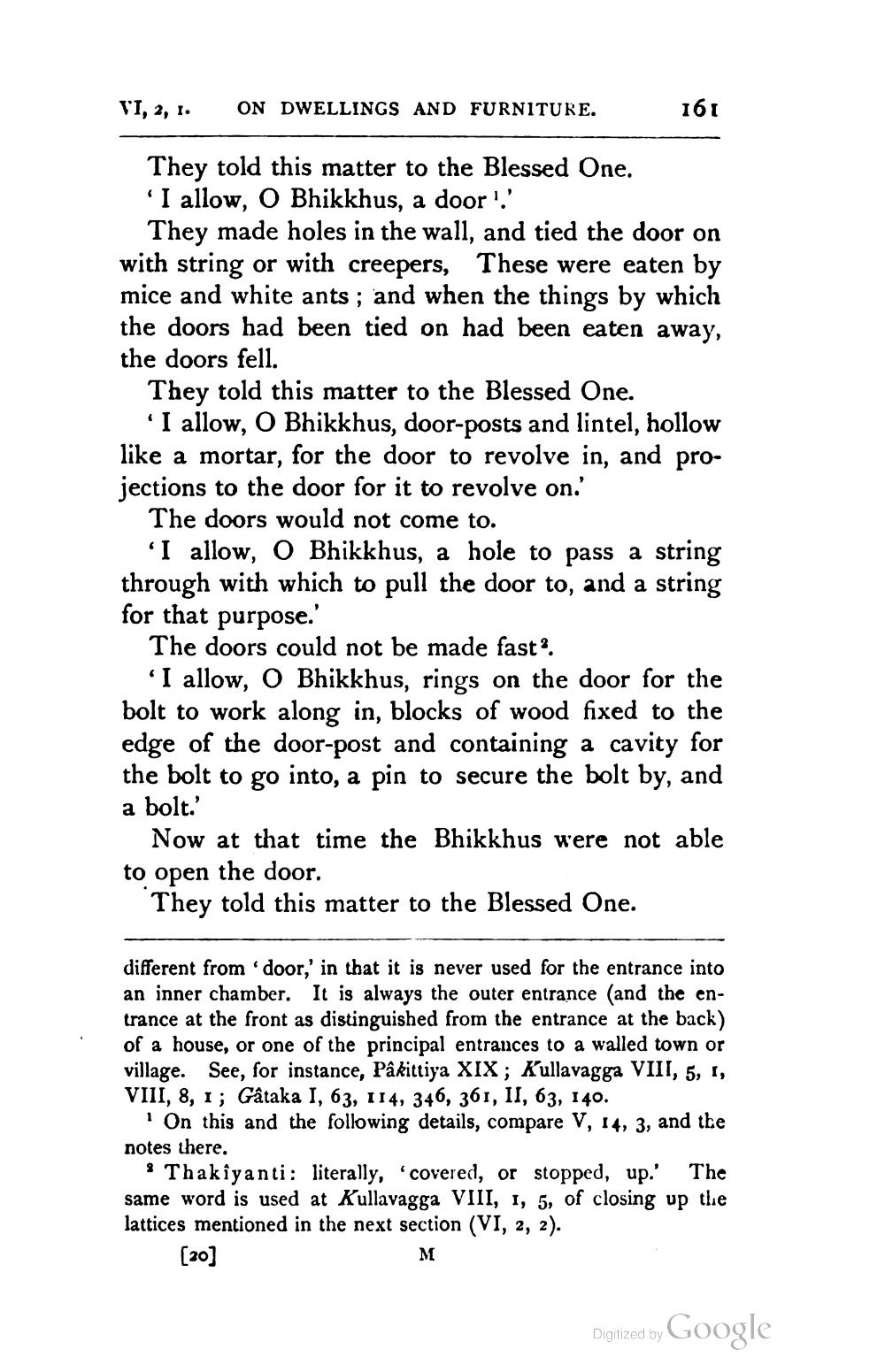________________
VI, 2, 1. ON DWELLINGS AND FURNITURE.
They told this matter to the Blessed One. 'I allow, O Bhikkhus, a door '.'
161
They made holes in the wall, and tied the door on with string or with creepers, These were eaten by mice and white ants; and when the things by which the doors had been tied on had been eaten away, the doors fell.
They told this matter to the Blessed One.
'I allow, O Bhikkhus, door-posts and lintel, hollow like a mortar, for the door to revolve in, and projections to the door for it to revolve on.'
The doors would not come to.
'I allow, O Bhikkhus, a hole to pass a string through with which to pull the door to, and a string for that purpose.'
The doors could not be made fast".
'I allow, O Bhikkhus, rings on the door for the bolt to work along in, blocks of wood fixed to the edge of the door-post and containing a cavity for the bolt to go into, a pin to secure the bolt by, and a bolt.'
Now at that time the Bhikkhus were not able to open the door.
They told this matter to the Blessed One.
different from 'door,' in that it is never used for the entrance into an inner chamber. It is always the outer entrance (and the entrance at the front as distinguished from the entrance at the back) of a house, or one of the principal entrances to a walled town or village. See, for instance, Pâkittiya XIX; Kullavagga VIII, 5, 1, VIII, 8, 1; Gâtaka I, 63, 114, 346, 361, II, 63, 140.
On this and the following details, compare V, 14, 3, and the notes there.
Thakiyanti: literally, 'covered, or stopped, up.' The same word is used at Kullavagga VIII, 1, 5, of closing up the lattices mentioned in the next section (VI, 2, 2).
[20]
M
Digitized by Google




